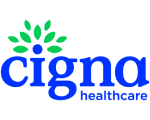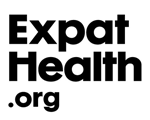Hospitals (병원 – byung weon)
Emergency and outpatient services are available in the general and university hospitals in each major urban center. Outside of an emergency it may be more convenient to visit a smaller hospital or specialist clinic as there are a great number of them and it will reduce your waiting time.
Despite this, for mild complaints such as the common cold or flu, Koreans will just as often go to the hospital as they will the local doctor. Don’t be surprised or alarmed if it is suggested that you go to the hospital if you have such symptoms.
You will need to present your Alien Registration Card (ARC) at the reception desk, or if you are a tourist, your passport. Fees for basic treatment are payable immediately following your consultation/treatment, though this can escalate depending on whether or not X-rays, ultrasounds and further checks are required. Follow-up appointments will be made if necessary.
Opening hours usually fall between 9am-6pm or 8am-8pm for smaller hospitals and clinics. Accommodation, if necessary, ranges from single to multi-bed rooms, which although basic, are relatively comfortable with very flexible visiting hours.
If you are issued with a prescription you will have to take it to a pharmacy (they are usually adjacent to the hospital) as hospitals are not allowed to distribute medication that is for home use. You will have to pay for any medication you get from a pharmacy there and then.
Doctors in South Korea (의사 – oui-sa)
The procedure for visiting doctors is similar to that of visiting hospitals. No appointment is necessary and you will simply need to show your ARC card or passport. In most cases basic consultations will be fully covered by your Korean health insurance or a minimal fee will apply.
Some differences that expatriates notice include Korean doctors not being as accustomed to discussing their diagnosis as their western counterparts. Treatment will often be prescribed without any explanation as to how it works or what the side effects are. This problem is often exacerbated by the language barrier.
However, doctors are gradually becoming used to seeing overseas patients and you should speak clearly and calmly, particularly if you have concerns about the medication being prescribed.
Another important point to note is that Koreans do not share the same sense of privacy as you might expect at home. Do not necessarily assume that confidentiality exists between you and your doctor and similarly don’t be surprised if, following a visit to the doctor or hospital, your health concerns are openly discussed at work. It is a cultural difference and if you are especially worried about it simply express that you wish such things to remain private.
Pharmacies in South Korea (약국 – yak-guk)
As is the case with hospitals, medication prescribed by doctors can be obtained at a nearby pharmacy.
The medication you receive will most likely come in small plastic packages containing a mixture of pills – each package constitutes one dosage. It is normally not labelled so be sure to clarify exactly when and how you should take it before you leave.
If you require a repeat prescription you will have to visit the doctor again. Pharmacies also sell non-prescription medication such as pain killers, cold and flu relief, birth control and basic first-aid supplies.
Dentists in South Korea (치과의사 – chigua oui-sa)
Dentists provide orthodontic and oral care that is considered to be of a high standard. Dental work is covered by Korean health insurance providing it is for health and not cosmetic reasons.
Opticians (안경 – an-gyung)
Opticians are easy to find in Korea and eye care is generally of good quality and relatively inexpensive. You can walk into any optician practice and ask for an eye test without an appointment.
Contact lens services are readily available and you can have prescription glasses made up within the hour. These in particular are inexpensive compared to many western countries.
For treatment of eye conditions and infections seek an eye specialist (안과의사 - angwa oui-sa)
Alternative medicine
Oriental medicine in Korea offers commonly sought treatments such as acupuncture and herbal cures. Traditional medicine specialists are common and sell many ginseng based remedies.




